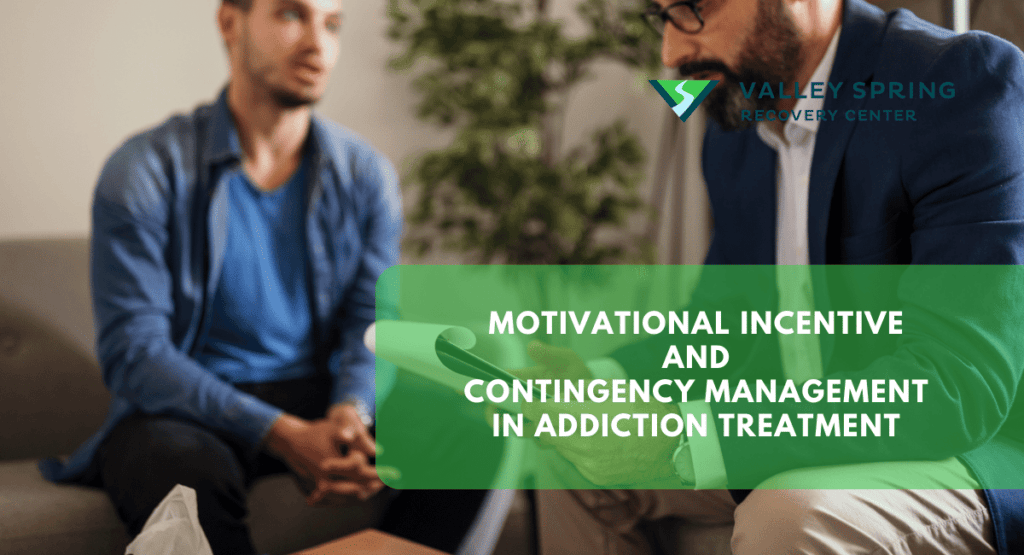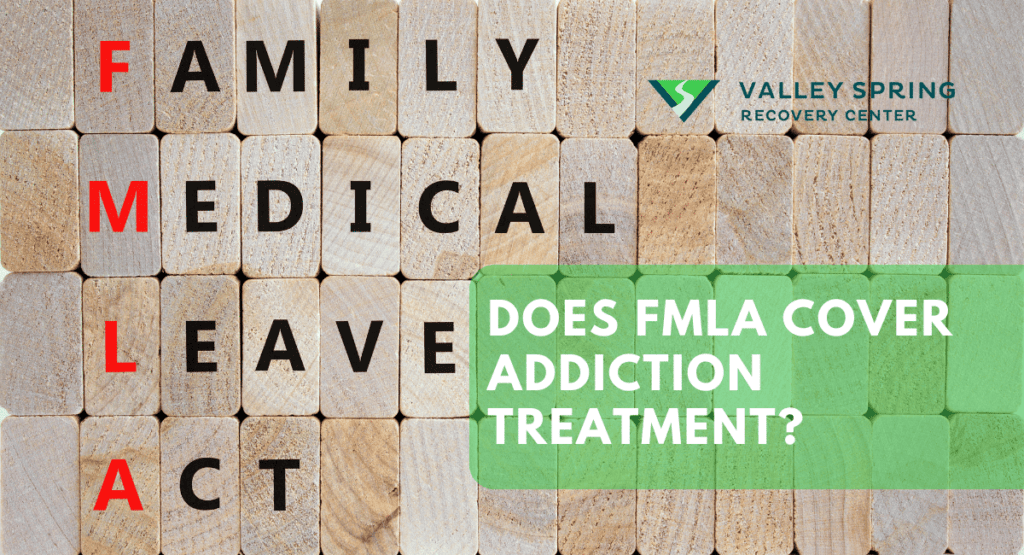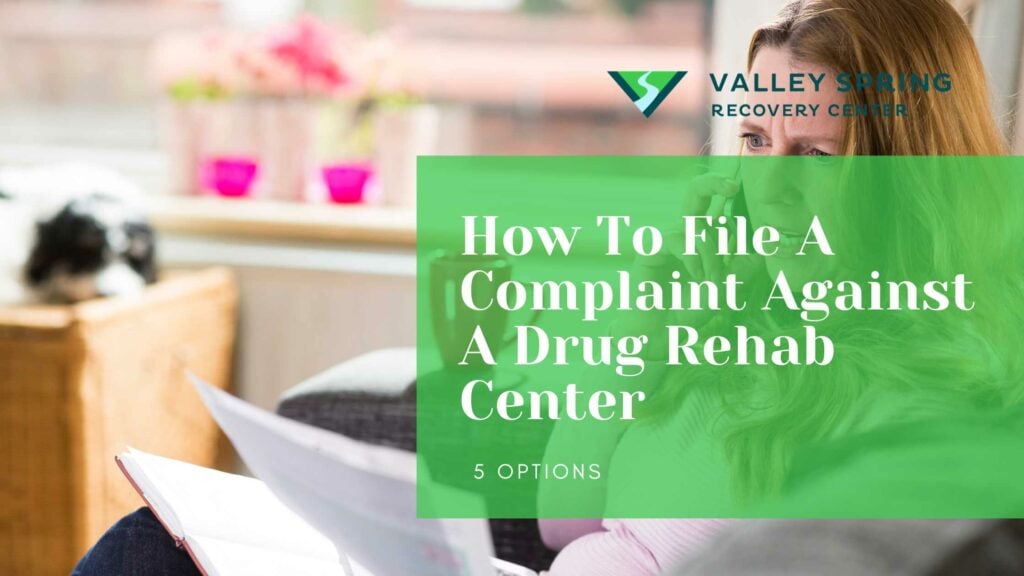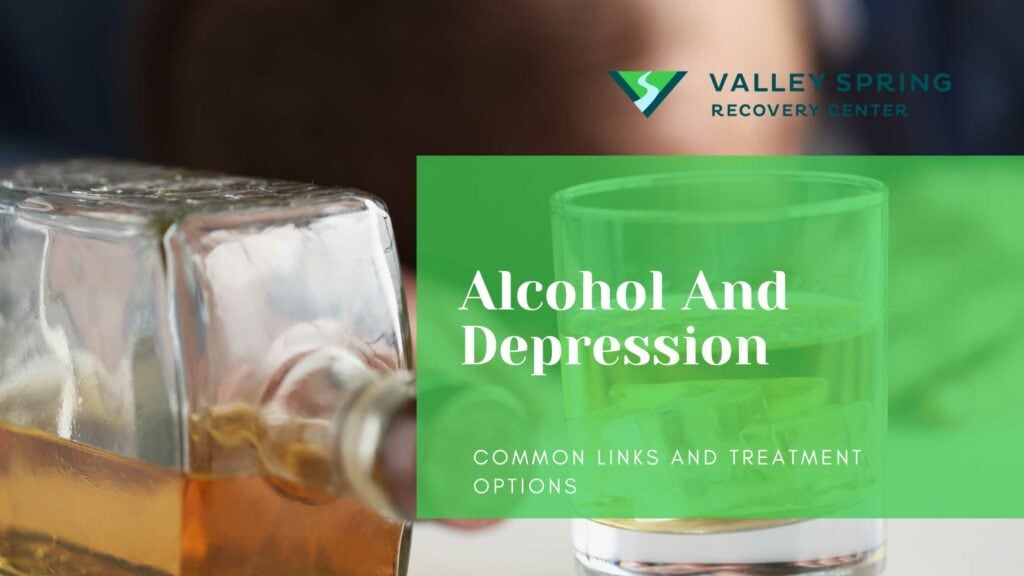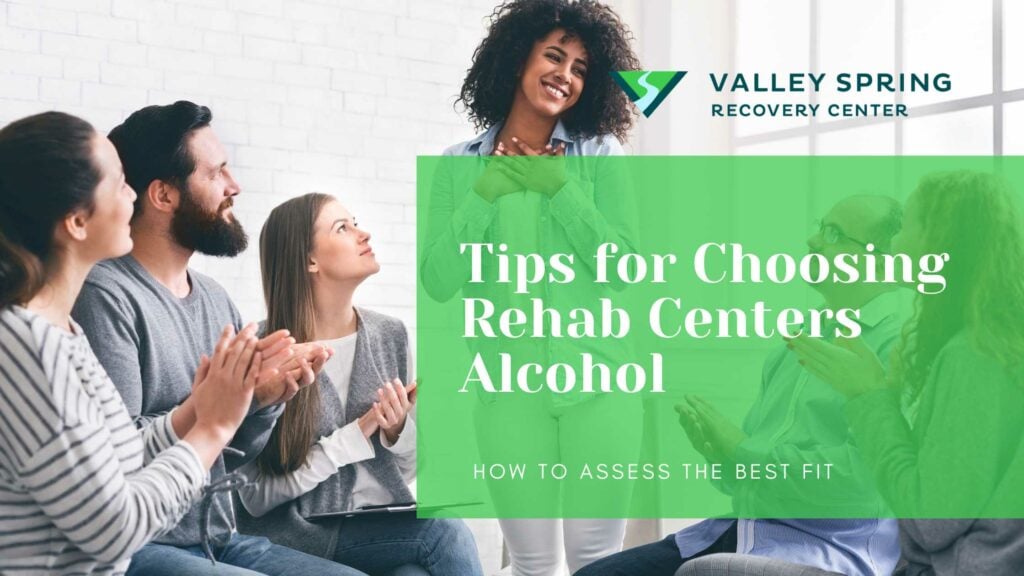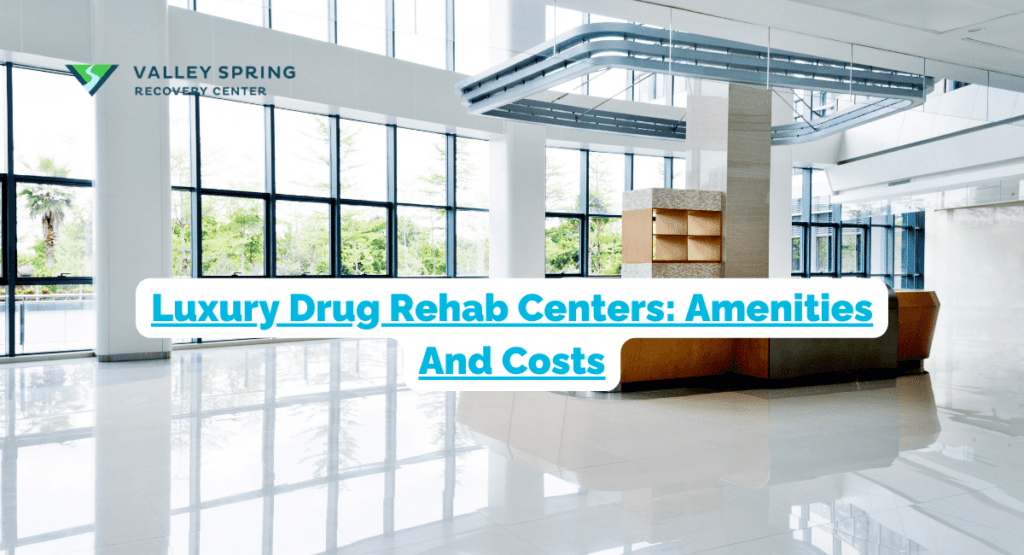Finding the best drug rehab center for yourself or a loved one is a crucial step in overcoming addiction. But with countless options available, how do you know which one is right for you? In this blog post, we’ll explore the essential factors to consider and share the “best drug rehab center near me” options across the United States, ensuring that you receive the utmost care and support throughout your recovery journey.
Key Takeaways
- When selecting a drug rehab center, consider accreditation and licensing, treatment programs and modalities, qualified staff, facility amenities.
- This article provides an overview of the best local drug rehab centers in various regions as well as specialized centers for age groups/genders/substances & co-occurring disorders.
- Insurance coverage & payment options are also available to provide access to comprehensive care while alleviating financial strain.
Factors to Consider When Choosing a Drug Rehab Center
In your quest for addiction treatment, the drug rehab center you select should guarantee optimal care and support. Four pivotal components to consider in your selection process are:

- Accreditation
- Treatment programs
- Staff qualifications
- Facility amenities
These factors significantly influence the success of your recovery journey and therefore warrant careful examination.
In your research for a drug rehab center, accreditation is a critical aspect to verify.
Accreditation and Licensing
A reputable drug and alcohol addiction treatment center is often distinguished by its accreditation and licensing. Organizations like the Joint Commission and CARF provide accreditation to facilities that meet their strict standards, ensuring quality care and effective treatment programs. For example, Urban Recovery in New York holds CARF accreditation, LegitScript certification, and licensure from the Office of Addiction Services and Supports (OASAS). Guardian Recovery Network and 1st Step Behavioral Health are accredited by the Joint Commission, a nationally recognized accreditation organization.
Obtaining additional certification from the state health department or mental health services administration is also crucial for treatment centers. This certification ensures that the facility adheres to state regulations and provides a high standard of care. Always authenticate the accreditation and licensing status of a drug rehab center during your research to confirm the facility’s credibility.
Treatment Programs and Modalities
Drug rehab centers provide a variety of treatment options and amenities, such as an inpatient rehab center, outpatient, and specialized programs. These programs should be evidence-based and tailored to individual needs, ensuring the most effective treatment for each person. For example, The Source in Fort Lauderdale offers a Partial Hospitalization Program (PHP) of two to six weeks, followed by an Intensive Outpatient Program (IOP) and an Outpatient Program (OP). Caron Pennsylvania is committed to tailoring each treatment program to the individual patient. They offer gender- and age-specific options that factor in biological and social differences as they relate to addiction.
Recovery Village provides tailored care based on the type of addiction, with locations across seven states and online. Oxford Treatment Center has a 12,000-square-foot facility for outpatient care. The facility includes distinct areas to provide medical, therapeutic, and community services.
Turnbridge offers the following services:
- Sober living and therapy, including medication management
- Residential and outpatient care for teens and young adults aged 14 and up
- Separate facilities and programs for young men, young women, and adolescents
- A 12-step based facility and integrated academic program
Turnbridge is also in-network with more than 50 insurance companies.
Inpatient vs. Outpatient Rehab: Unpacking Treatment Modalities for Effective Recovery
When it comes to drug rehabilitation, one of the first crucial decisions you’ll face is choosing between inpatient and outpatient treatment. This choice can significantly affect the course and quality of your recovery journey.
What Constitutes Inpatient Rehab?
Inpatient rehab is an immersive treatment experience where patients live in a controlled environment for a specific period, often ranging from 28-30 days to several months. This approach allows individuals to detach from their daily lives and stressors, providing them an isolated space to focus solely on recovery. Inpatient programs typically offer comprehensive services, including detoxification, counseling, group therapy, and medication-assisted treatments. The treatment is intensive, and staff are available 24/7 for support and medical emergencies.
Outpatient Rehab Defined
Contrastingly, outpatient rehab allows patients to continue with their daily activities like work, school, and family obligations while undergoing treatment. OP or outpatient addiction treatment programs range from day treatments, which can be as rigorous as inpatient care but are conducted in a less restrictive environment, to more flexible schedules that only require attendance for a few hours per week. Though it offers freedom, outpatient care demands a higher level of self-discipline and doesn’t provide round-the-clock support.
Key Comparison Metrics
- Severity of Addiction: Inpatient care is generally better suited for individuals grappling with severe or long-term addiction, multiple relapses, or co-occurring mental health conditions. Outpatient care often works well for those with mild to moderate addiction levels.
- Personal Obligations: If you have work, school, or family commitments that you cannot leave for an extended period, outpatient treatment may be more aligned with your lifestyle.
- Support System: A strong personal support network can supplement outpatient treatment effectively. Conversely, if you lack such a network or live in an environment contributing to your addiction, inpatient care can be invaluable.
- Financial Considerations: Inpatient treatment is generally more expensive due to residential care, 24/7 support, and comprehensive services. Insurance may cover some of these costs, but this varies by policy and provider.
- Self-Discipline and Commitment: Outpatient rehab relies heavily on the patient’s commitment to adhere to the treatment plan. If you believe that you may struggle with maintaining the necessary level of self-discipline, inpatient care might be the more prudent option.
Evaluating Your Options
The choice between inpatient and outpatient rehab should not be made lightly. Consider factors such as the severity of your addiction, your lifestyle obligations, available support networks, and financial capacity. Consult professionals to assess your specific situation and to develop a tailored treatment plan that aligns with your recovery goals.
Understanding the distinct advantages and limitations of each modality allows you to make an informed decision, thereby optimizing the likelihood of a successful, lasting recovery.
Inpatient vs. Outpatient Rehab: Unpacking Treatment Modalities for Effective Recovery
When it comes to drug rehabilitation, one of the first crucial decisions you’ll face is choosing between inpatient and outpatient treatment. This choice can significantly affect the course and quality of your recovery journey.
What Constitutes Inpatient Rehab?
Inpatient rehab is an immersive treatment experience where patients live in a controlled environment for a specific period, often ranging from 28 days to several months. This approach allows individuals to detach from their daily lives and stressors, providing them an isolated space to focus solely on recovery. Inpatient programs typically offer comprehensive services, including detoxification, counseling, group therapy, and medication-assisted treatments. The treatment is intensive, and staff are available 24/7 for support and medical emergencies.
Outpatient Rehab Defined
Contrastingly, outpatient rehab allows patients to continue with their daily activities like work, school, and family obligations while undergoing treatment. Programs range from day treatments, which can be as rigorous as inpatient care but are conducted in a less restrictive environment, to more flexible schedules that only require attendance for a few hours per week. Though it offers freedom, outpatient care demands a higher level of self-discipline and doesn’t provide round-the-clock support.
Key Comparison Metrics
- Severity of Addiction: Inpatient care is generally better suited for individuals grappling with severe or long-term addiction, multiple relapses, or co-occurring mental health conditions. Outpatient care often works well for those with mild to moderate addiction levels.
- Personal Obligations: If you have work, school, or family commitments that you cannot leave for an extended period, outpatient treatment may be more aligned with your lifestyle.
- Support System: A strong personal support network can supplement outpatient treatment effectively. Conversely, if you lack such a network or live in an environment contributing to your addiction, inpatient care can be invaluable.
- Financial Considerations: Inpatient treatment is generally more expensive due to residential care, 24/7 support, and comprehensive services. Insurance may cover some of these costs, but this varies by policy and provider.
- Self-Discipline and Commitment: Outpatient rehab relies heavily on the patient’s commitment to adhere to the treatment plan. If you believe that you may struggle with maintaining the necessary level of self-discipline, inpatient care might be the more prudent option.
Evaluating Your Options
The choice between inpatient and outpatient rehab should not be made lightly. Consider factors such as the severity of your addiction, your lifestyle obligations, available support networks, and financial capacity. Consult professionals to assess your specific situation and to develop a tailored treatment plan that aligns with your recovery goals.
Understanding the distinct advantages and limitations of each modality allows you to make an informed decision, thereby optimizing the likelihood of a successful, lasting recovery.
Qualified Staff
The success of addiction treatment heavily relies on the expertise and experience of the staff at drug rehab centers. Qualified personnel should possess knowledge and proficiency in addiction treatment, providing complete care and assistance throughout the recovery journey. For example, the Guardian Recovery Network’s team is dedicated to providing individuals with personalized care and evidence-based therapies to support them through their recovery journey.
Banyan Treatment Center employs a highly-qualified team consisting of Master’s level state-licensed and PhD. level clinicians. SOBA New Jersey has an experienced staff of clinicians, therapists and support personnel. They are committed to providing respectful and science-based treatment.
During your research, confirm that the staff at the drug rehab centers possess the required qualifications and experience to offer comprehensive care and support during the recovery process.
Facility Amenities
A comfortable and well-equipped rehab facility is essential for a successful recovery journey. Drug rehab centers should offer amenities that promote comfort, safety, and well-being. For example, Greenhouse Treatment Center provides luxury amenities, including indoor and outdoor recreational spaces, a gym/fitness center, and a pool. 1st Step Behavioral. Health offers a serene and welcoming environment, combined with state-of-the-art facilities.
The availability of various amenities can impact the overall recovery experience. These may include recreational activities, holistic therapies, and support services that foster self-sufficiency and provide post-treatment assistance. Consider the amenities of the facility when selecting a drug rehab center to guarantee a conducive and supportive environment for your recovery journey.
Best Local Drug Rehab Centers by Region
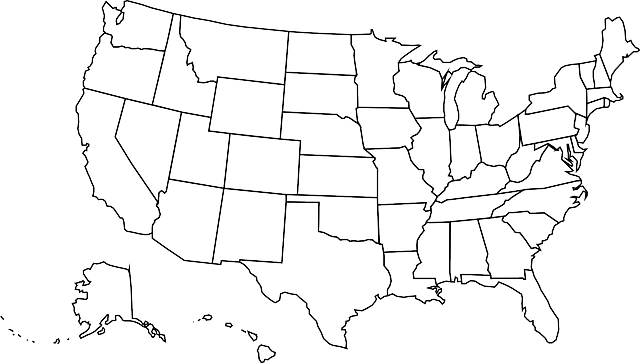
After exploring the crucial factors in choosing a drug rehab center, it’s time to investigate the top local drug rehab centers segmented by region. We’ll showcase top facilities in the Northeast, Midwest, South, and West, offering a variety of treatment options and specialized programs to cater to the unique needs of individuals seeking addiction treatment.
Northeast
The Northeast region is home to some of the country’s top drug rehab centers, offering comprehensive treatment programs and state-of-the-art facilities. For example, Recovery Centers of America provides a wide range of services, including inpatient and outpatient care, telehealth sessions, and sober living support.
Guardian Recovery Network is another highly-regarded facility in the Northeast, boasting accreditations from respected organizations such as the Joint Commission. Urban Recovery in New York is a top addiction treatment center, offering a range of treatment options, including residential treatment, medical detox, and holistic therapies.
These premier addiction treatment providers in the Northeast region provide individuals seeking addiction treatment with optimal care and support throughout their recovery journey.
Midwest
In the Midwest region, a selection of reputable drug rehab centers focus on evidence-based treatment and personalized care. Our research shows that the Hazelden Betty Ford Center is the highest-rated drug addiction treatment center. It has earned an excellent reputation for treating such addiction successfully. They provide a range of treatment options, including inpatient and outpatient programs, medication-assisted treatment, and holistic therapies.
Rosecrance, another renowned facility in the Midwest, is accredited by the Joint Commission and offers a wide range of addiction treatment programs. With their innovative treatment approaches and emphasis on holistic care, these leading drug rehab centers in the Midwest offer essential support for individuals on their recovery path.
South
The South region offers an array of top drug rehab centers, providing a range of treatment options and specialized programs for specific populations. For example, Sunrise House in New Jersey offers a variety of addiction treatment programs, including trauma therapy and LGBTQ+ groups and lectures. They also provide dual diagnosis treatment and accept a wide range of insurance plans, including major providers and Medicaid.
Lantana Recovery, located in Florida, provides tailored care based on the type of addiction and offers comprehensive treatment programs for both inpatient and outpatient settings. Offering specialized care and a broad spectrum of treatment options, these premier drug rehab centers in the South region guarantee individuals receive the required support throughout their recovery journey.
West
The West region is home to leading drug rehab centers that implement innovative treatment approaches and focus on holistic care. Facilities like The Hope House, a luxury inpatient rehabilitation center with a maximum occupancy of 10 clients, provide comprehensive care and support for individuals struggling with addiction.
Offering progressive treatment programs and a focus on holistic care, these leading drug rehab centers in the West region fulfill a crucial role in the recovery journey of numerous individuals.
Specialized Drug Rehab Centers

Beyond regional drug rehab centers, specialized facilities exist that cater to distinct categories.
- Age groups
- Genders
- Substances
- Co-occurring disorders
These centers provide targeted and effective treatment for individuals with unique needs, ensuring a more personalized and successful recovery journey.
Age-Specific Centers
Age-specific centers offer tailored treatment programs for teens, young adults, and older adults, addressing the unique challenges faced by each age group. Turnbridge offers specialized and comprehensive care for teens and young adults aged 14 and above. It has separate facilities and programs for young men, young women, and adolescents. They also offer a 12-step based facility and an integrated academic program, ensuring a comprehensive approach to addiction treatment.
The Salute to Recovery Program is another age-specific center that caters to veterans and first responders. This curriculum focuses on PTSD, addiction, and resources to improve daily life coping without the use of substances. Age-specific centers, through their specialized treatment programs designed for specific age groups, can more effectively address the unique needs and experiences of individuals in recovery.
Gender-Specific Centers
Gender-specific centers provide specialized care for men and women, addressing the distinct needs and experiences of each gender in addiction treatment. For example, Caron Pennsylvania offers gender-specific treatment programs, taking into account biological and social differences in addiction. These facilities create a supportive environment that fosters understanding and solidarity among participants.
Sunrise House in New Jersey also offers specialized programs for the LGBTQ+ community, addressing the unique challenges faced by this population and understanding the risk of developing addictive behaviors. Gender-specific centers, by catering to the unique needs of men and women, guarantee a more targeted and successful treatment experience.
Substance-Specific Centers
Substance-specific centers focus on treating addiction to specific drugs, providing targeted care and support for individuals struggling with a particular substance. These centers offer therapies and interventions that address the physical, psychological, and emotional effects of the substance, enhancing the efficacy of the treatment and boosting the chances of successful recovery. Recovery Village, for example, provides tailored care based on the type of addiction, with locations across seven states and online.
Substance-specific addiction treatment centers, including drug treatment center options, offer specialized treatment programs designed for particular drugs, tackling the unique challenges faced by individuals battling a specific addiction and promising a more comprehensive and successful recovery experience.
Dual Diagnosis Treatment Centers

Dual diagnosis treatment centers specialize in providing integrated care for individuals struggling with both addiction and co-occurring mental health disorders, enabling comprehensive recovery. For example, Sunrise House’s trauma therapy focuses on acknowledging the influence of PTSD on substance abuse and providing strategies to manage and surpass it.
Integrated and simultaneous care is recommended for treating co-occurring disorders, ensuring that both addiction and mental health issues are addressed effectively. These centers, by offering specialized care for individuals with dual diagnoses, provide a holistic approach to recovery, addressing both addiction and mental health needs.
Insurance Coverage and Payment Options

Payment options for drug rehab centers include private insurance, Medicare and Medicaid, along with self-pay or sliding scale fees. These options ensure that individuals with varying financial resources can access the addiction treatment they need.
It’s important to understand the available payment options and the extent of insurance coverage before beginning treatment.
Private Insurance
Private insurance may cover drug rehab treatment, but coverage varies depending on the plan and provider. For example, Rosecrance accepts a wide range of insurance plans, including the major providers and Medicaid. Private insurance for drug rehab centers provides several benefits, including:
- Coverage for treatment
- Access to a wider selection of treatment options
- Alleviation of financial strain
- Comprehensive care
- Confidentiality and privacy
Before capitalizing on private insurance for addiction treatment, confirm your coverage level with your insurance company and your treatment provider. This ensures that you fully understand the extent of your coverage and any copays or deductibles associated with your insurance policy.
Medicare and Medicaid
Medicare and Medicaid are government-funded health insurance programs that can cover addiction treatment under certain conditions, providing support for eligible individuals. These programs offer assistance with paying for addiction treatment, both in inpatient and outpatient settings. However, Medicaid coverage may differ depending on the state.
To ascertain if your Medicare or Medicaid plan extends to addiction treatment, review your policy and consult with your insurance provider. This ensures that you understand the extent of your coverage and any limitations or requirements associated with your plan.
Self-Pay and Sliding Scale Fees
For those without insurance or with limited coverage, self-pay and sliding scale fees offer flexible payment options. Self-pay fees require a set fee to be paid in full by the patient, while sliding scale fees are based on the patient’s income and can be adjusted accordingly. These payment options provide several advantages, including payment flexibility, affordability for those with lower incomes, enhanced privacy, prompt access to treatment, and the potential for personalized care.
To establish self-pay and sliding scale fees, the patient usually needs to present evidence of income and other financial information to determine the fee amount. This ensures that the payment plan is tailored to the individual’s financial situation, making treatment more accessible for those with varying financial resources.
Online Resources for Finding Drug Rehab Centers
Online resources for finding drug rehab centers include websites, directories, and helplines that provide information and support for individuals seeking addiction treatment. For example, SAMHSA’s Behavioral Health Services Locator tool enables individuals to search for addiction treatment and mental health services in their local area by address, city, state, or zip code, or by the type of service requested.
Leveraging online resources allows you to discover a variety of treatment options and accumulate essential information about each facility, helping you locate the best drug rehab center for your unique needs. These online tools offer valuable support and guidance in the search for addiction treatment, simplifying the process and helping you make informed decisions about your recovery journey.
Summary
In conclusion, finding the best drug rehab center involves considering critical factors such as accreditation, treatment programs, staff qualifications, and facility amenities. With a range of top drug rehab centers available across the United States, specialized facilities catering to specific needs, and various insurance coverage and payment options, individuals seeking addiction treatment are well-positioned to embark on a successful and supported recovery journey. Remember, the first step to overcoming addiction is seeking the right treatment center, and with the resources and information available today, you’re one step closer to a healthier, happier future.
Frequently Asked Questions
What is the meaning of rehab center?
A rehab center is a clinic where people with an addiction to alcohol or drugs can be treated in order to recover.
It is also commonly referred to as an alcohol and drug rehabilitation center.
How many treatment centers are there in the US?
In 2020, there were 16066 substance abuse treatment facilities in the United States. This figure is growing year-on-year and indicates the strong commitment to address addiction problems in the country.
What factors should I consider when choosing a drug rehab center?
When choosing a drug rehab center, look for accreditation, effective treatment programs, qualified staff and desirable amenities to ensure the best possible care.
Accreditation is important because it shows that the center meets certain standards of care. Effective treatment programs should include evidence-based therapies, such as cognitive behavioral therapy, and should be tailored to the individual’s needs. Qualified staff should be hired.
Are there specialized drug rehab centers for specific age groups, genders, or substances?
Yes, specialized drug rehab centers exist that provide tailored treatment for specific age groups, genders, substances, and co-occurring disorders.
These centers are designed to meet the unique needs of each individual, providing a comprehensive approach to recovery that includes evidence-based therapies, holistic treatments, and aftercare planning.
What insurance coverage and payment options are available for drug rehab centers?
Private insurance, Medicare, Medicaid, and self-pay or sliding scale fees are available for drug rehab centers, providing accessible treatment to individuals with different financial means.
Ben Fisher
All author postsShare This Post


